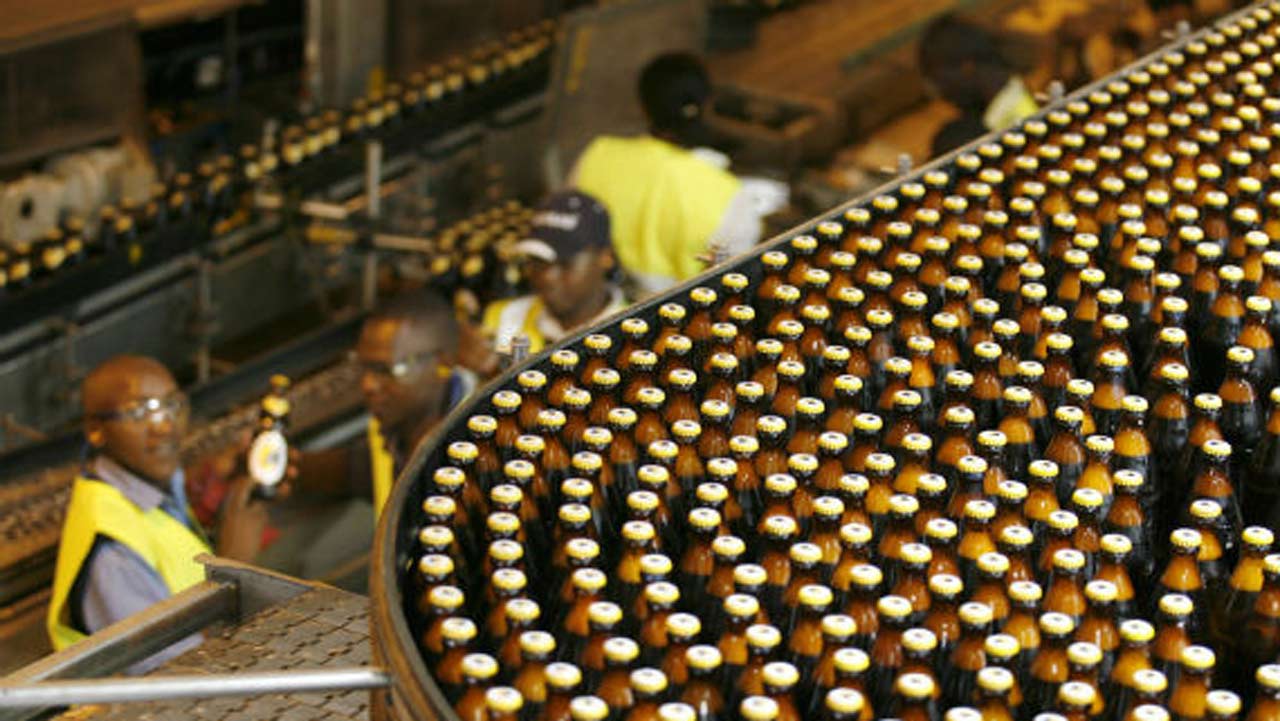 Despite recovery from the negative growth recorded by the manufacturing sector last year, operators have expressed optimism about sustained momentum, urging the government to address challenges of infrastructure, competitiveness and industrial linkages.
Despite recovery from the negative growth recorded by the manufacturing sector last year, operators have expressed optimism about sustained momentum, urging the government to address challenges of infrastructure, competitiveness and industrial linkages.
According to the local producers, the improvement in economic performance of the sector and that of the nation, marks the beginning of a tortuous journey back to the path of recovery and meaningful growth.
The Manufacturers Association of Nigeria (MAN) noted that the economy is beginning to recover from the shocks of the COVID-19 pandemic, albeit with the other operating challenges in the economy.
Its Director-General, Segun Ajayi-Kadir identified the negative impact of the depreciation in Naira value and acute shortage of forex as huge challenges in the first quarter of 2021, adding that the situation calls for more intentional actions from government with focus on supporting productive activities to drive better performance in the remaining quarters of the year.
“Frankly speaking, the 0.40% growth rate differential is moderate. Caution must be applied, as this performance when examined in the mirror of 2019, results show below par growth rate. Meaning it will amount to an error of judgement to ascribe better performance by comparing Q1 2021 with Q4 2020, a year like no other that was heavily challenged by COVID-19 and a period that growth was largely driven by full easing of lockdown, seasonal and festive driven demand for goods and services.
“Let us compare the 0.51% growth rate of Q1 2021 with the 2.1% of Q1 2019, a relatively stable economic period. When this is done, it will be clear that the 0.51% reported growth rate is low, even though a positive and reassuring trend. It shows that the economy is picking up and points to the gradual but steady recovery stance of the economy”, he added.
He explained that the growth In Q1 2021 in the manufacturing sector, reflected a rebound to the level of pre-COVID-19 period.
According to him, the Food, Beverage & Tobacco and Chemical & Pharmaceutical sectors were expected to post higher growths due to the relatively higher capacity utilization they enjoyed since 2020, adding that it is not out of place for the Cement and Basic Metal, Iron and steel sector to present high growths in Q1 2021 due to the increased level of construction work going on in different parts of the country backed by government spending across the country.
“These results were largely corroborated by the MAN Manufacturers CEOs Confidence Index (MCCI) of Q1 2021, a quarterly survey of the manufacturing sector. The index showed improvement in the confidence of manufacturers in a good number of manufacturing sectoral groups. They include Food, Beverage & Tobacco (Q4 2020=48.16; Q1 2021=51.17); Non-Metallic including Cement (Q4 2020=39.5; Q1 2021=42.8); Chemical & Pharmaceutical (Q4 2020=43.2; Q1 2021=55.87), etc.
“However, the reported 3.40% growth rate of the manufacturing sector in Q1 2021 came as a surprise. given the numerous challenges facing the sector. We are currently experiencing rising cost of manufacturing inputs, so it is surprising to see a rate higher than the rate of 0.81% in Q1 2019 and 0.43% of Q1 2020 which were relatively stable periods.
“Incidentally, there is no recorded high level of economic activities in the sector that would justify such a growth rate in the quarter. Even the aggregate MCCI which increased to 49.1 points in Q1 2021 from 42.1 points in Q4 2020 was still below the 50 neutral base points, which indicated that manufacturers only have a little more confidence in the economy”, he added.
He however reiterated the need for the government to intensify its intervention initiatives and follow through on the cost reduction aspect of ease of doing business, as there is urgent need to create a friendlier operating environment and deliberately support the productive sector in a strategic manner.
On his part, the Director-General of Nigeria Employers’ Consultative Association (NECA), Dr Timothy Olawale noted that while the positive trend should be applauded, it is not yet a time for celebration, as the growth pattern is still far below the population growth rate of over 3% per annum.
“There is a need to intensify efforts and make more sectors (and sub-sectors) experience higher growth in subsequent quarters. This can be achieved by implementing more friendly investment driven policies, most especially in the manufacturing and telecommunication sector among others”, he said.



